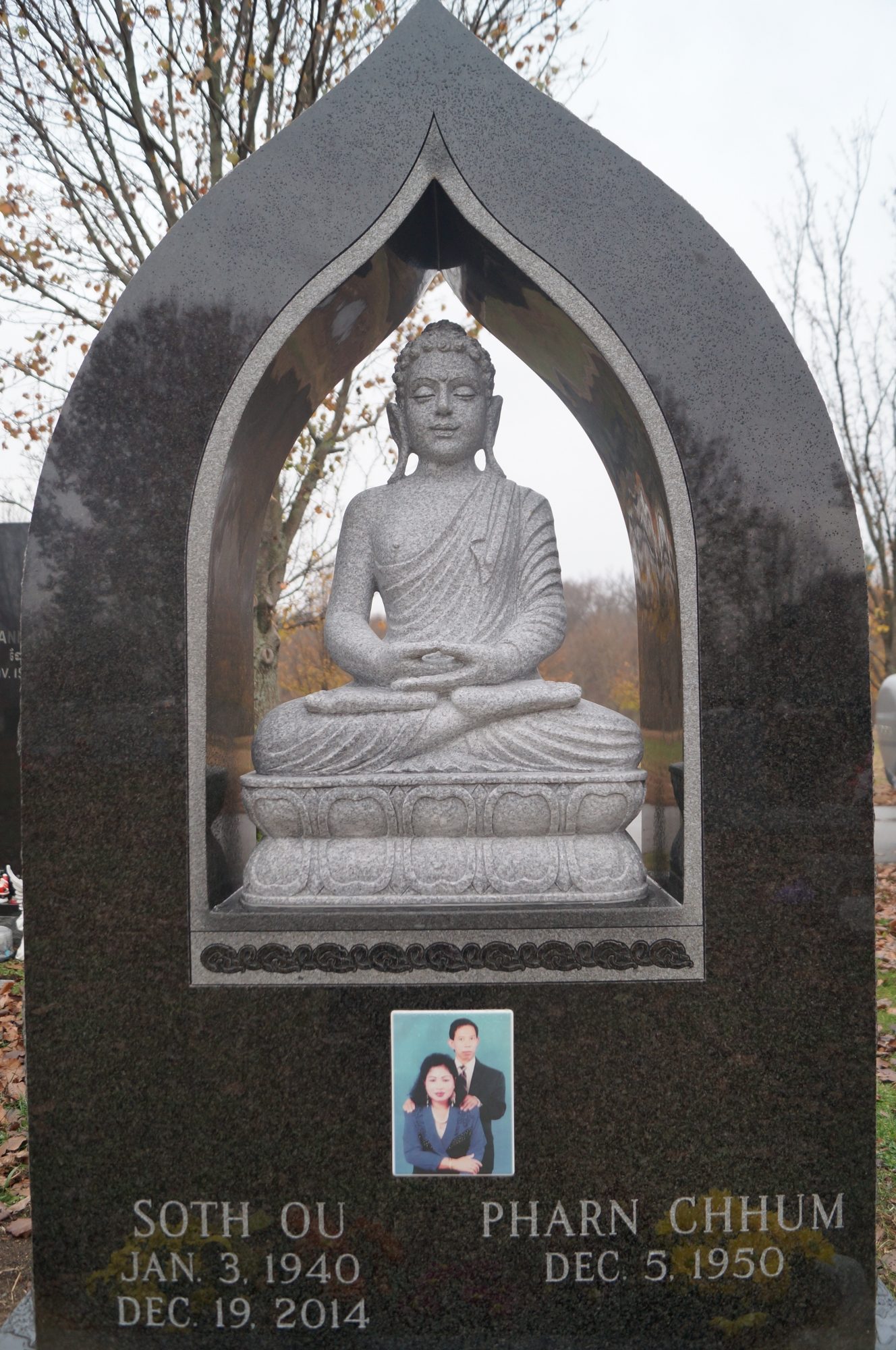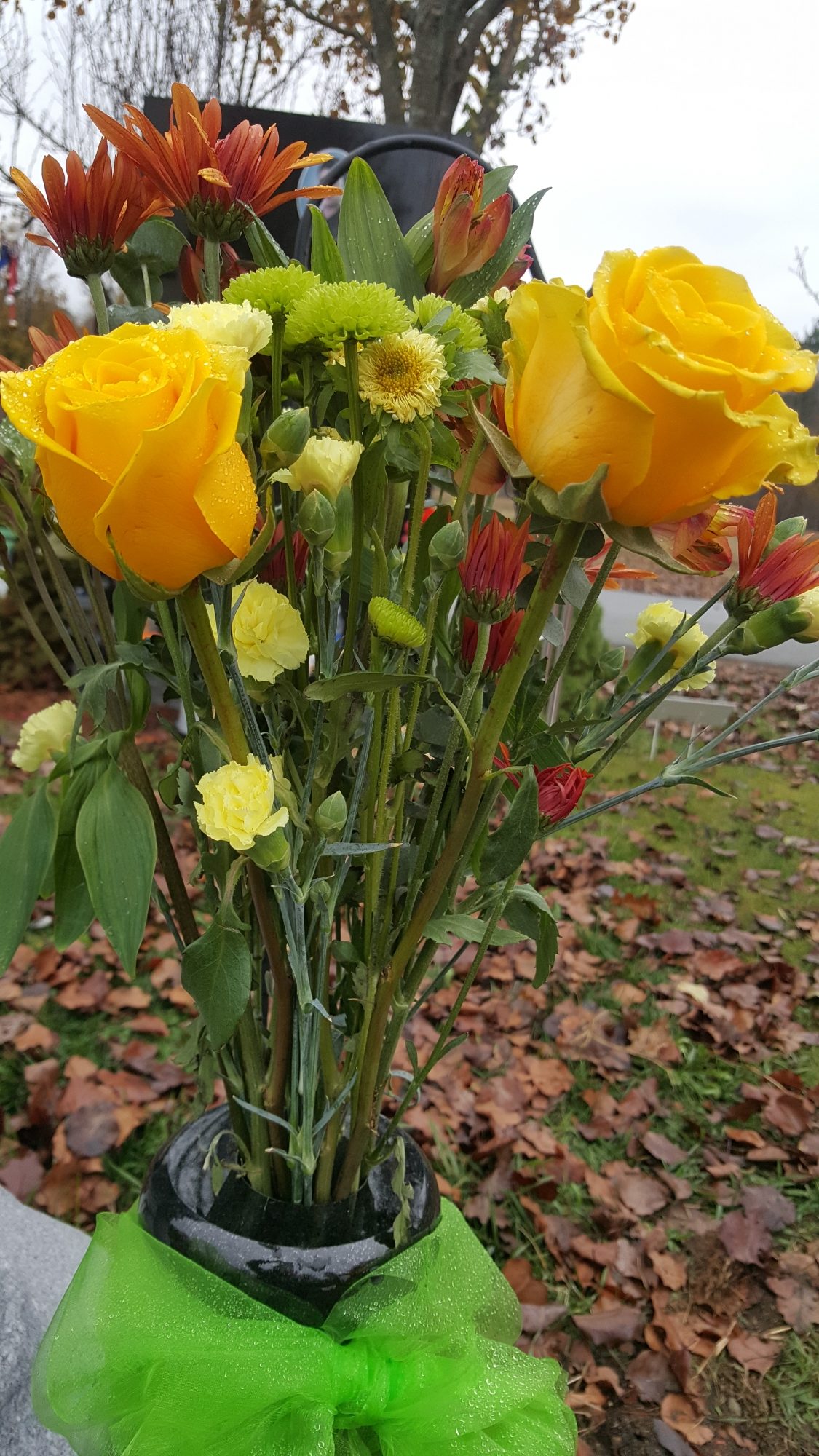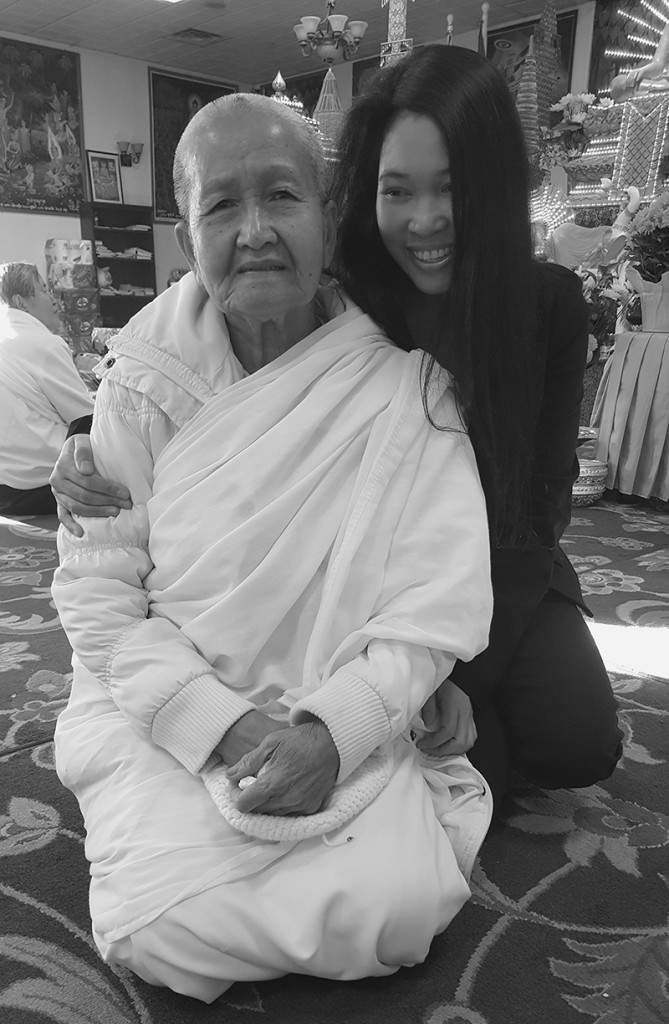-
Comment November 23, 2015
-
Graveyard… with my dad and little sister
Comment November 22, 2015“We won’t say goodbye because true love never dies.” ~Unknown
Sometimes the things that may or may not be true are the things a man needs to believe in the most. That people are basically good; that honor, courage, and virtue mean everything; that power and money, money and power mean nothing; that good always triumphs over evil… ~Robert Duvall
-
Be kind to other…
Comment November 22, 2015 -
When the sun is freed from clouds
Comment November 22, 2015 -
Benefit to living beings…
Comment November 21, 2015 -
When you meditate with concentration
Comment November 21, 2015
When you meditate with concentration, there are three particular experiences that arise: bliss, clarity, and non-thought. Sometimes you feel great joy, sometimes your mind is very clear, and sometimes there is complete equanimity. To experience these you do not need to meditate for a long time, although for a beginner these experiences will not last long because of the limited ability of a beginner’s meditation.
The experience of meditative bliss is greater than ordinary worldly happiness. Sometimes when you are meditating, a feeling of blissfulness suddenly arises from the subtle state of your mind and pervades your entire body. This bliss is healthy and brings out your inner qualities. Some people use drugs to induce blissfulness and visions, but drugs are external supports that cannot bring lasting happiness. The bliss experienced in meditation can last for many days, according to your ability to meditate. When you experience this kind of bliss, on the outside you might look very poor, but inside you remain very joyful.
The second main experience in meditation is clarity. Sometimes while meditating you can suddenly feel that your mind is very clear and bright. Even if you are meditating in the dark, you do not feel heavy or tired. Sometimes your body feels very light and your mind is very clear, and many kinds of reflections appear. Clarity brings great wisdom and the ability to read other people’s minds, as well as to see your own past and future lives.
The third main experience is non-thought, or a state of equanimity without distractions. Beginners can also experience this. Non-thought is more settled than the experiences of bliss and clarity. If you have thoughts, they suddenly dissolve and you can remain continuously in meditation. As your ability to meditate develops, your mind becomes more and more settled, so that you can meditate for one hour or one week or one month without being distracted by thoughts. You simply remain in the natural state for as long as you want.
— Khenchen Palden Sherab and Khenpo Tsewang Dongyal
-
The Story of Culapanthaka
Comment November 21, 2015
The Teacher while in residence at the Bamboo grove gave this religious discourse beginning with “Utthanenappamadena” with reference to the Elder Culapanthaka.
It is said that in Rajagaha, the daughter (of the family) of a rich banker, on coming of age was closely guarded by her parents on the upper story of a seven-storied palace. Because of her caprice due to her young age she developed an ardent longing for the opposite sex and she cohabited even with her own slave and fearing that other people might come to know of it, said “It is impossible for us to live here. If my parents come to know of this misdeed, they will cut me into pieces. Let us go and live somewhere else”. Taking with them their personal effects they left by the main gate thinking “We shall go and live in some place unknown to others” and took residence at a certain place. As a result of their living together she became conceived.
When she was in the advanced stage of pregnancy, she discussed with her husband thus, “My pregnancy has reached the advanced stage; confinement in a place devoid of friends and relations would just be courting trouble, let us go to the home of our parents”. Fearing that he would lose his life if he were to go there he procrastinated saying, “We will go to-day, we will go tomorrow.”
She thought, “Due to the gravity of his own misdeed, this fool does not dare to go; in fact parents only wish for the good (of their children). Whether he goes or not, I shall go.” As she was leaving that house, she arranged the house in order and informing her next door neighbours of her departure to the home of her parents she set out on her journey.
He returned home and not finding her, enquired of the neighbours and, learning that she had left for her parent’s house, followed her hastily and overtook her on the way. She gave birth to a child at that very place. He enquired of her “What is it my dear?” “Sir, it is a son”, replied she. “What should we do now?” “The purpose for which we are going to the house of our parents is accomplished on the way. What is the use of our going there? Let us turn back.” Both of them being of one accord, turned back. That child being born on the way, was named Panthaka.
Before long she became conceived once again. The detailed account of what happened on the previous occasion should be repeated all over here. Because of the fact that that child was also born on the road the first born child was named Mahapanthaka and this other Culapanthaka. Taking both the boys they returned to their own home. While they were living there, the boy Mahapanthaka heard other children addressing their uncles and grand-parents, and asked his mother, “Mother, other boys speak of their uncles and grand-parents. Have we no relations, mother?” “Yes, son, you have no relatives here. In the city of Rajagaha, however, you have a grandfather who is a rich banker and we have many relations there.” “Why do not we go there, mother?” asked the son. She did not tell her son the reason why she did not go, but when her sons spoke about it repeatedly she said to her husband, “These boys are worrying me very much. My parents are not going to eat us (our flesh) when they see us. Come let us take the children to their grand-parents.” Continue reading
-
I have learned
208 November 21, 2015I think if I’ve learned anything about friendship, it’s to hang in, stay connected, fight for them, and let them fight for you. Don’t walk away, don’t be distracted, don’t be too busy or tired, don’t take them for granted. Friends are part of the glue that holds life and faith together. Powerful stuff. ― Jon Katz

-
Splendid colors
Comment November 21, 2015The sun, rising and setting in splendid colors, never grows tired
of its admirers―much like a lady, aglow with grace, never grows tired
of chivalrous acts or pretty flowers. ~Richelle E. Goodrich
-
Female Dictionary
Comment November 21, 2015Nothing, forget it = You better figure out what you did wrong.
Are you tired? = Please don’t go to sleep, I love talking to you.
I’m okay = Hold me tight, I need a shoulder to cry on.
I don’t care anymore = I still care, but i”m tired of arguing with you.
I’m cold = Get a blanket and cuddle with me.
Leave me alone = Please don’t go.
I love you = Tell me you do more.~Unknown















